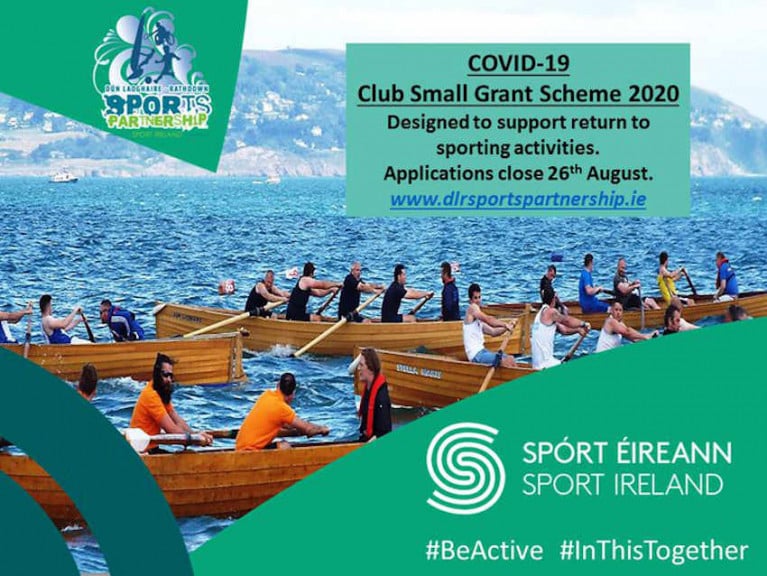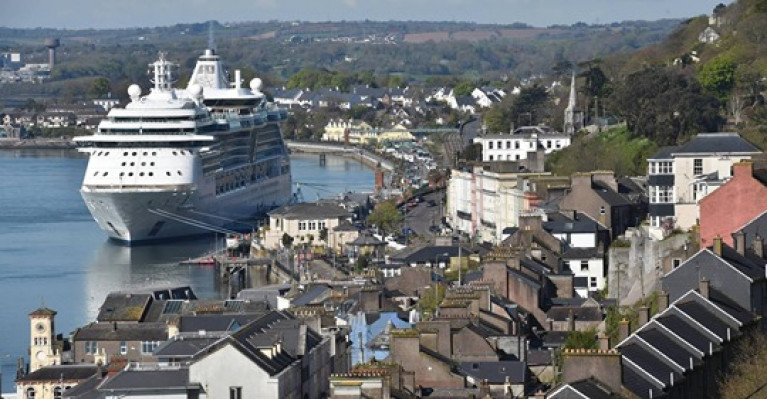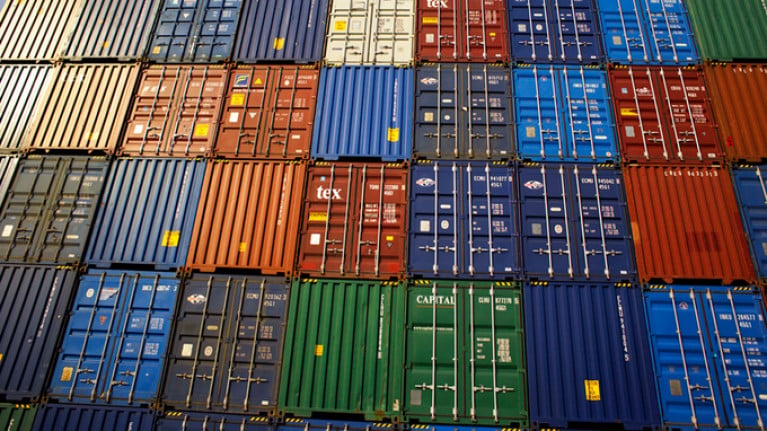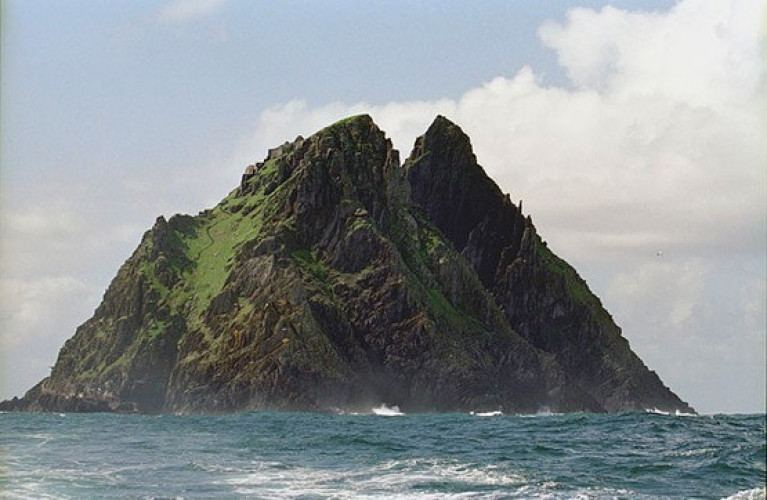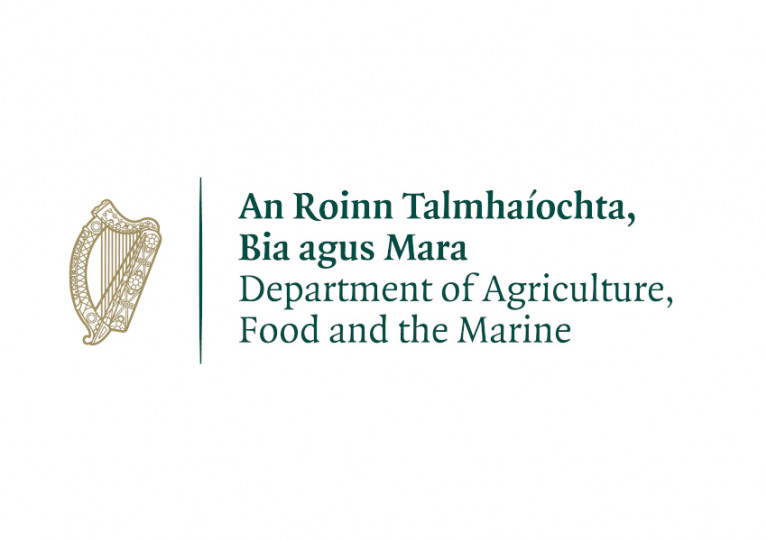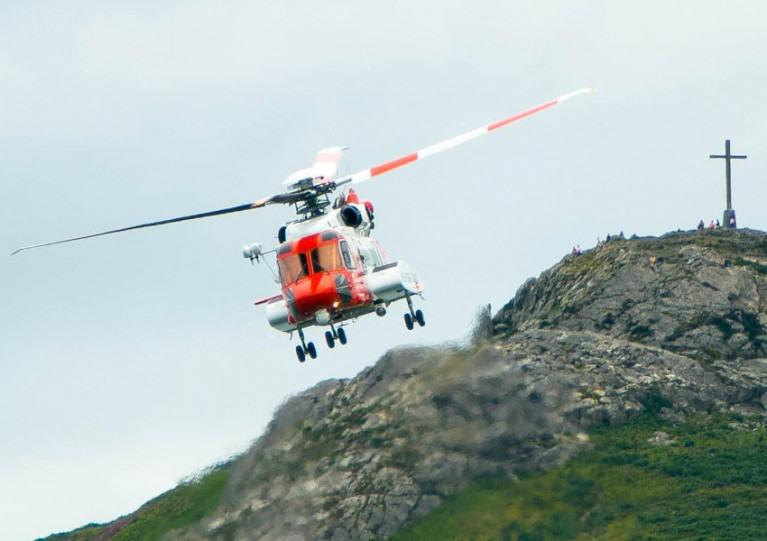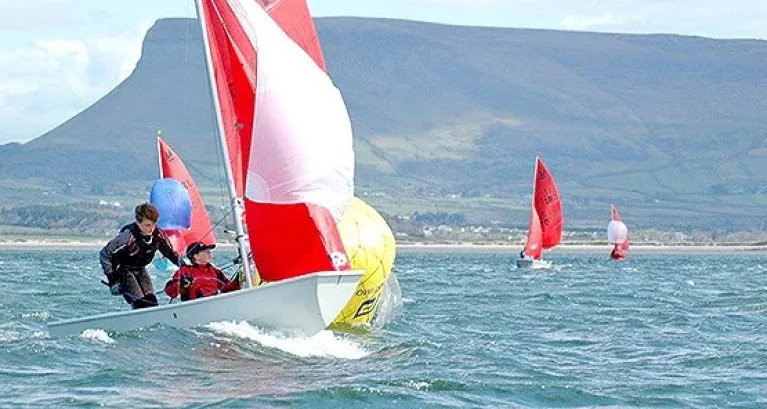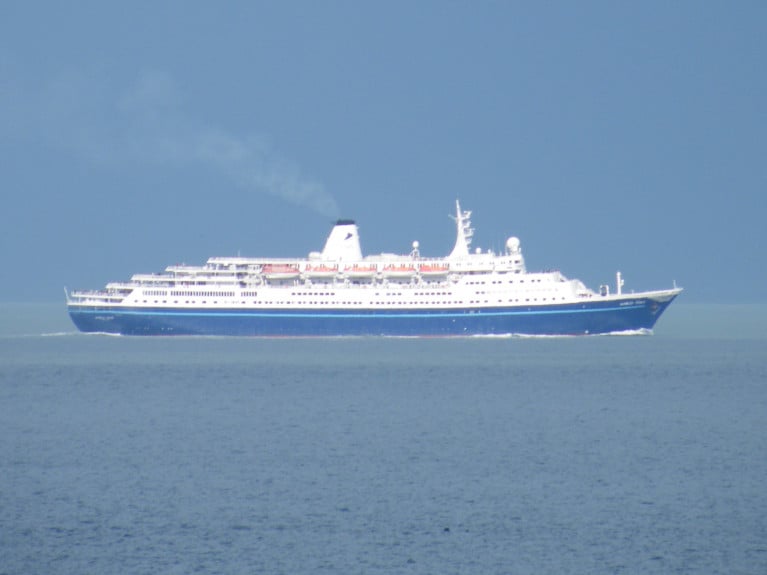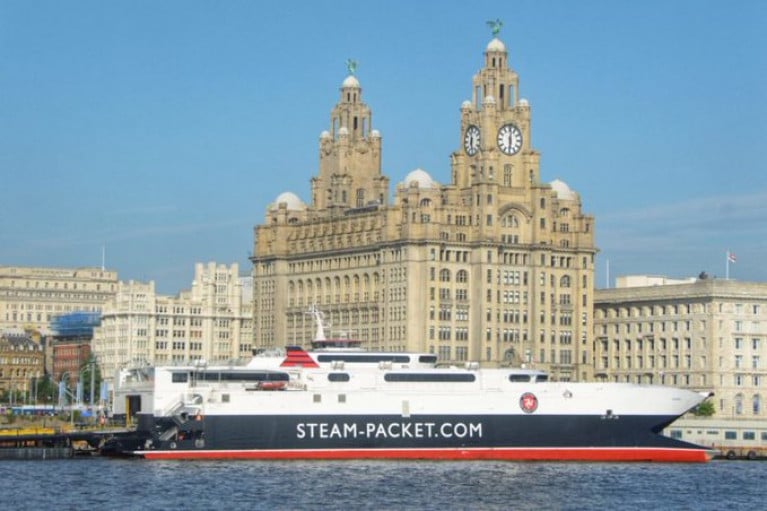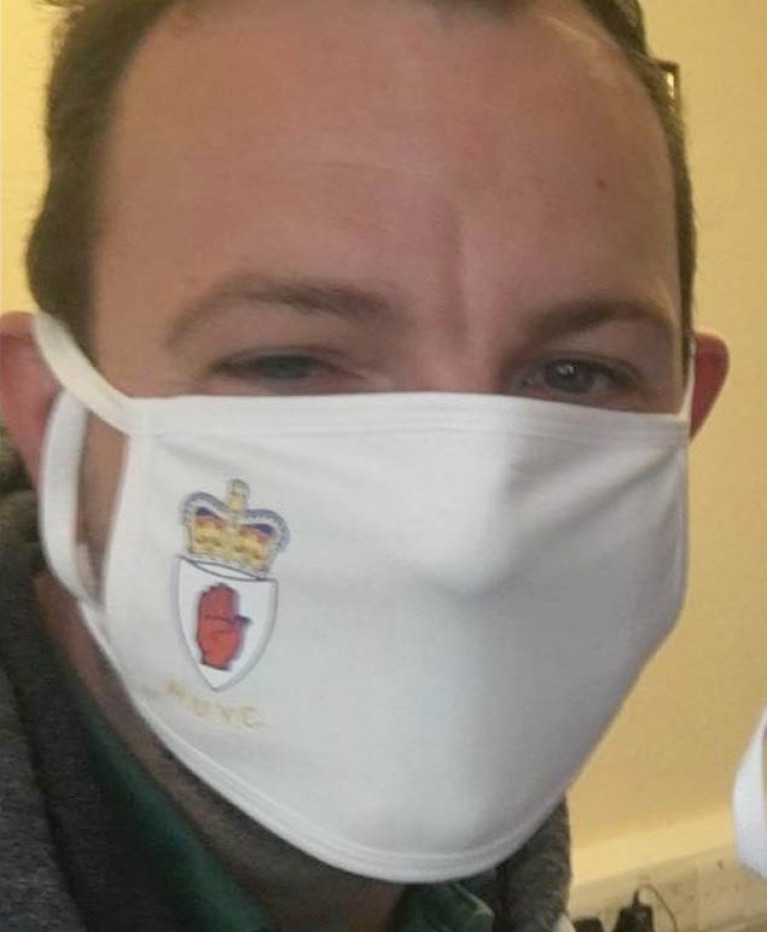Displaying items by tag: COVID19
Dun Laoghaire’s waterfront yacht clubs are among the sports clubs that may be eligible to apply for Covid-19 Club Small Grants of up to €1,500 through the Dun Laoghaire Rathdown Sports Partnership.
The grants are part of a series of funding schemes from Sport Ireland following the announcement of €70 million of funding by the Government to support the sports sector in response to the coronavirus crisis.
Implemented by Sport Ireland’s network of Local Sports Partnerships, the grant scheme will provide assistance to local clubs with covering costs associated with the reopening of sports clubs.
Grants can be used to support Covid-19-related expenditure dating from 2 May, when the Roadmap to Recovery was published, onwards.
The scheme is needs-based, designed to support sports clubs that do not have the finances to implement the necessary hygiene and social distancing protocols.
As the total fund available is limited, clubs which already have the finances to implement Covid-19 protocols should not apply.
In addition, the scheme is designed and intended to support return to sporting activities only and cannot be used to support costs related to hospitality services.
There is a limit of one application and €1,500 per club on this grant scheme. Applications will be means tested and only clubs with the most need will be eligible for the full amount. Clubs should not feel that they have to apply for the full amount to be considered for support.
Sports clubs are advised to contact DLR Sports Partnership at [email protected] or 01 2719502 for further information on this scheme.
Funding applications must be submitted prior to Wednesday 26 August via the application form HERE.
Cruise Industry in Ireland Will Not Recover Until 2023
Visits to Ireland by cruise liners are unlikely to recover fully until 2023, which will lead to a major drop in tourism revenue for towns such as Cobh.
The town in Cork Harbour was due to host 105 liner visits this year and a further 110 liners were booked to tie up there in 2021. However, the Covid-19 pandemic has hit cruise line companies hard and a Government ban on all liner visits to ports remains in place, although some companies are running cruises off the Irish coast.
The chairman of an umbrella body which represents 140 European ports dealing with cruise liners has said if the ban was lifted he could see some smaller liners visiting the country before the end of the year.
Captain Michael McCarthy, chairman of Cruise Europe, said the Irish economy would lose an estimated €60m per year from cruise liner tourism if the ban is not lifted.
More on this Irish Examiner story here.
Only one ship visited the Port of Cork this season Afloat.ie adds when Saga Sapphire in mid-March berthed at Ringaskiddy though with concern of Covid-19 but cruisegoers were given a clean bill of health.
Global Container Port Investment Hit by Covid-19 Slowdown
Over the next five years investment in container port capacity is expected to tumble following coronavirus-induced global trade slowdowns.
According to the latest Global Container Terminal Operators Annual Review and Forecast report published by Drewry, container port capacity expansion will contract by at least 40% over the next five years in the wake of COVID-19 economic contractions that have hit container trade volumes.
The shipping consultant expects global container terminal capacity to grow at an average annual rate of 2.1% over the next five years, equating to an additional 25 million TEU per year.
“This is well below the capacity growth seen over the past decade, when the average annual increase was more than 40 million TEU a year,” noted Drewry.
Port throughput is projected to grow at an average annual rate of 3.5% over this period from 801 million TEU in 2019 to reach 951 million TEU by 2024.
For much more LloydsLoadingList reports
Boat Operators Vow To ‘Come Back With A Bang’ As Skellig Michael Is Closed To Visitors This Season
Skellig Michael will not be reopened to visitors this season due to concerns around the spread of coronavirus, the OPW has confirmed.
But as The Irish Times reports, the decision which followed a promised assessment after the island was closed in May has left local boat operators disappointed, but not surprised.
“There are a few operators doing sea angling trips but the landing trips [on to Skellig Michael] are the bread and butter for most of us,” said Donal McCrohan, chairman of the Skelligs Boatmen’s Association.
“We would have liked to get going ahead but it is what it and this is the outcome and I suppose we just have to look forward to 2021 and come back with a bang.”
Yesterday (Thursday 30 July) the OPW said it had taken the decision not to reopen the island off the Kerry coast due to the risks involved in both the boat passage to the island and visiting the island itself amid the ongoing coronavirus pandemic.
The Unesco World Heritage site features prominently in the second instalment of the recent Star Wars film trilogy, which concluded in cinemas this past Christmas.
The Irish Times has more on the story HERE.
Reminder On Covid-19 Guidance For Domestic Passenger Vessels
The Department of Transport, Tourism and Sport has issued a reminder of guidance for all operators of domestic passenger vessels to prevent the spread of coronavirus on their services.
This includes the Covid-19 Marine Travel Protocol and guidance for ferry services to offshore islands, the Return to Work Safely Protocol, and Fáilte Ireland’s Covid-19 Safety Charter.
Further details are included in Marine Notice No 32 of 2020, which can be downloaded below.
In the absence of this year’s Bray Air Display due to the coronavirus pandemic, the Irish Coast Guard’s Dublin-based helicopter Rescue 116 conducted a special fly-past to pay tribute to Ireland’s frontline healthcare workers.
The Sikorsky S92 helicopter took to the skies over the Co Wicklow town at 3pm yesterday, Saturday 25 July, on the same afternoon it flew to the rescue of a family of four stranded by the tide at Sandymount.
Rob Tatten, general operations manager of CHC Ireland, which operates the coastguard’s SAR helicopter service, was in attendance to make small presentation to Mr Paul Reid, chief executive of the HSE, and spoke before the event.
He said: “CHC, who operates the helicopter search and rescue contract on behalf of the Irish Coast Guard, has been taking part in the Bray Air Display every year. However due to the pandemic that wasn’t possible this year.
“But with the organisers of the show we said could we do something to recognise the phenomenal work of our fellow frontline healthcare workers, who like us continue to work 24/7, 365 days a year.
“So today, Rescue 116, while out training, will do a fly-past to thank those workers while we also make a short presentation to Paul Reid and other frontline workers to say thank you on behalf of CHC, the Irish Coast Guard, the aviation community and Bray Air Display.”
New Dates Announced For Mirror Nationals & Easterns
New dates have been announced for the Mirror Nationals and Eastern regional championships by Mirror Sailing Ireland following this summer’s disruption to the schedule amid the coronavirus pandemic.
Sligo Yacht Club, host venue for next year’s Mirror Worlds, will welcome youth sailing competitors for racing over the weekend of 15-16 August, with a practice race and free boat time on Friday 14 August. Further details will follow on the Facebook event page HERE.
Meanwhile, the Eastern regionals are now scheduled to take place on 19-20 September at Blessington Sailing Club. However a date is still pending for the Mirror Southerns at Lough Derg Yacht Club.
Previously it was confirmed that Lough Ree Yacht Club will host the Mirror Northerns on the weekend of 29-30 August, while the Mirror Westerns have moved to 3-4 October at Galway Sailing Club.
A UK cruise operator Cruise & Maritime Voyages (CMV) has gone into administration, with the “global pandemic of seismic proportions” being blamed for its demise.
The line, writes The Telegraph, which has six ships in its fleet and was founded in 2010, has “ceased trading with immediate effect”, according to administrators Duff & Phelps. It comes after concerns were raised last month that the company was in desperate need of additional funding – which it said it was “confident” of securing.
There are no passengers on board any of CMV’s vessels, with all operations paused since March. It has been due to resume sailing on August 25. All future bookings have been cancelled.
Customers who had trips booked can find out how to get their money back on Cruise & Maritime Voyages’ website. The company mainly sold cruise packages, which are protected by ABTA, and a smaller number of flight-inclusive packages which are protected by ATOL.
For much from the newspaper click here.
In addition Afloat adds a link to CMV website which announced its news of administration (yesterday, 20 July) and advice for clients of the operator click here
The classic cruiseship once a former Soviet era liner, was a frequent caller to Irish ports over the last decade and of recent years fleetmate Magellan which 'homeported' out of Dublin Port and Cork (Cobh) catering for the Irish marketplace.
The Manx Government has lowered its coronavirus alert level meaning the fast (ferry)craft Manannan can resume sailings between Liverpool and the Isle of Man
As Liverpool Business News reports, fast craft sailings between the England and the Isle of Man will resume this week – but only for residents of the island.
In March the Isle of Man Steam Packet Company halted sailings, which can be up to twice a day during the peak summer months, as the island looked to protect its residents from the spread of coronavirus.
Since March there have been 336 confirmed cases of COVID-19 among the Isle of Man’s population of around 84,000 people, with 312 recovering and 24 deaths. There has been no new confirmed cases on the island for more than 50 days.
From Monday, July 20, the Manx government is moving its alert level from 5 to 4 which means residents will be allowed to visit the UK and beyond for holidays or to visit friends and relatives before self-isolating for 14 days on their return.
Although the Steam Packet Company rescheduled its timetable in late March, it has continued to operate daily services between Douglas and Heysham, including an overnight lifeline freight service.
For further reading click here
If we need any further indication of the longterm seriousness of the current public health precautions in the face of the coronavirus pandemic, then we’re told everything by the fact that sailing and yacht clubs are finally responding through acquiring stocks of facemasks with their club insignias or other club-related messages conspicuously displayed.
On the shores of Belfast Lough, the Royal Ulster YC (founded 1866) has been experimenting with a neat white model on which of course the Red Hand of Ulster is unmistakably prominent. And down in Crosshaven at the weekend, the 300-year-old Royal Cork YC – frustrated in many of its Tricentenary Celebrations – took delivery of its first consignment of customised masks from sportswear and accessory specialists Rashr, and these new items make a Tricentenary statement which will turn them into treasured mementoes in the years to come.
 Royal Cork YC customised facemasks from RashR are now available at the club
Royal Cork YC customised facemasks from RashR are now available at the club
In fact, if this corona-battling business goes on as long as many fear, we’ll see further developments with the various indicators of an individual’s ranking in the club hierarchy being incorporated in their facemasks. It’s a complex area - for those unacquainted with the arcane secret signals of club status, the word is that it’s all to do with swallow-tails and the display of balls.
Of course, if things go on for too long, we’ll stray into a dark world of extra-special equipment being supplied for the elite few. An acquaintance in Uruguay – which has, largely unnoticed, been exceptionally successful in combatting the pandemic despite being neighbour to disease-rampant bigger states – has forwarded this image. He tells us it may look like an army officer’s outfit, but it actually is a thinly-disguised Commodore’s De Luxe Coronavirus Kit which is current being developed and test-marketed in South America. For the elite only, to be bought out of club funds – the Commodores De Luxe Coronavirus Kit
For the elite only, to be bought out of club funds – the Commodores De Luxe Coronavirus Kit


























